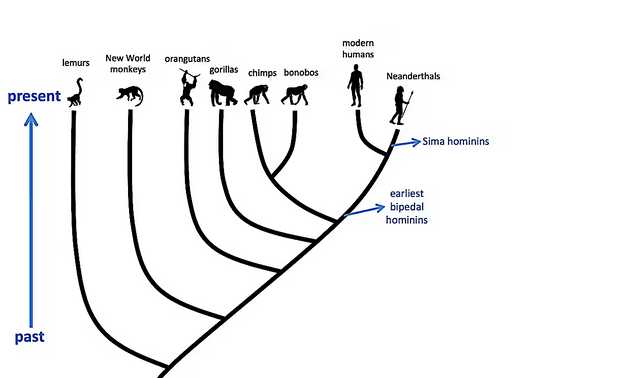Any individual who chooses not to or cannot have children, ends an unbroken chain of life that stretches four billion years.
Book: The Ape that Understood the Universe: How the Mind and Culture Evolve
According to evolutionary theory, every species evolved from an earlier species, which itself evolved from an earlier species. If we trace back the genealogies of existing species, they soon begin to converge like tree branches.
Chimpanzees and bonobos share a common ancestor around a million years ago. Humans share a common ancestor with them around seven million years ago. This interconnectedness extends across the whole spectrum of life: humans and whales, whales and dogs, dogs and mushrooms. Ultimately, all life on Earth traces back to a simple, self-replicating molecule that appeared around four billion years ago.
This view of life implies a somewhat mind-blowing fact: Any individual who chooses not to have children or who has childlessness thrust upon them, brings to an end an unbroken chain of life that stretches back four billion years.
That said, no one should feel bad about this observation (unless there's a cultural or personal factor) because, in fact, most organisms throughout Earth's history died before they ever reproduced.
